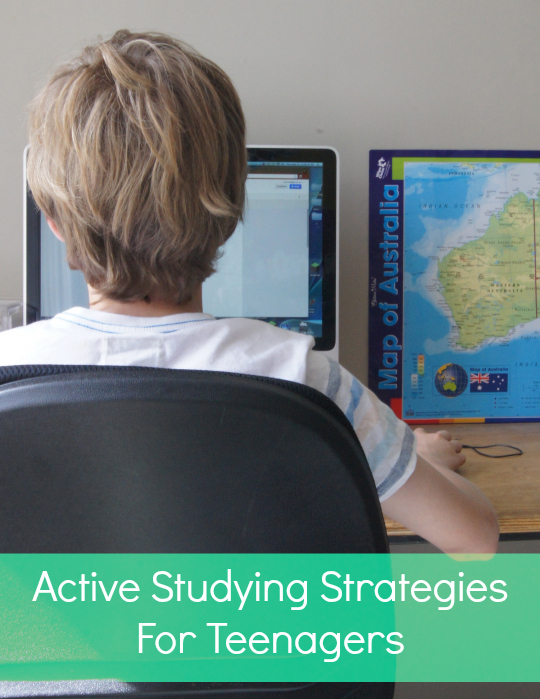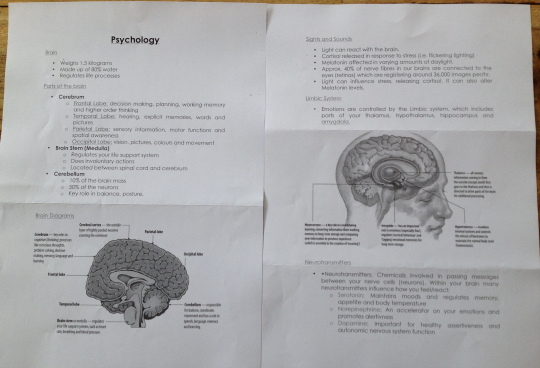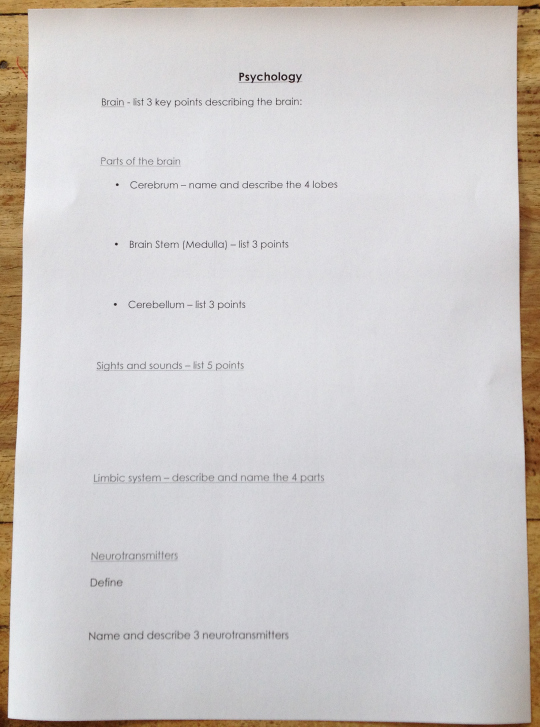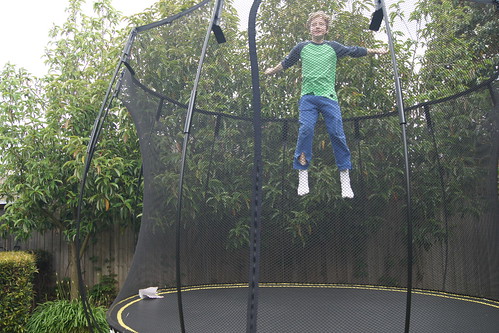This is part of my monthly series on Parenting Teenagers.
Our almost 15 year old commences year nine end of year exams on Monday. At the school he attends they have exams at the end of Semesters one and two from year seven. For our son, this has been a good thing. Each year the exams begin to count for a greater percentage of his semester’s work. Each year our teenager has become better at studying and better at organising his study.
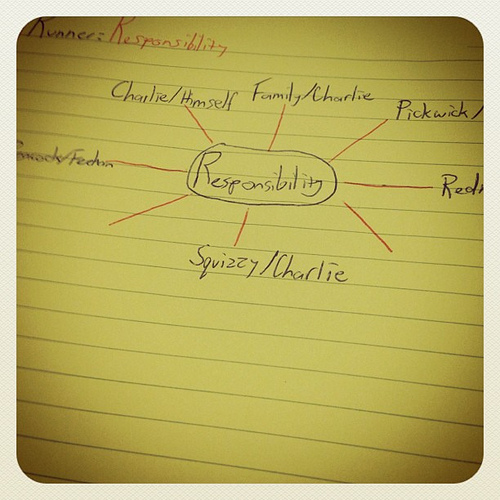
But this has happened with some help. After watching him approach his exams in year seven, which saw him still writing up notes the weekend before exams, I decided to work with him on his study skills last year. The school do cover some study skills, but I could see he needed some more guidance in how to go about studying for exams.
In this post, Teaching Study Skills I shared some of the areas we covered:
- Effective note taking
- Taking his learning style into account
- Removing distractions
- Creating a study timetable
This semester the teenager had his notes completed well before this weekend and he has now moved to typing them up in word documents and printing them out. This works well for him. He adds timelines, images, graphics etc as appropriate to help him remember the key content for various topics.
Active studying
Observing how he studied his notes, it made me realise we still had some work to do his studying technique. His approach was to get out his notes, lie on the floor and read over them. To me this sometimes looked a little bit like resting or snoozing!
After watching him study for a while and then take a break, I asked him a couple of questions on what he had just studied. His recall wasn’t great and he agreed he hadn’t retained everything he read. He was actually studying for an upcoming Science test on the psychology unit.
So I challenged him to take a different approach to see if a more active approach to his study would help him. He agreed and so we worked together to create his own test for Psychology. He went to the word doc version of his notes, saved another version and cut them down to make a his own quiz. To do this he:
- Cut out all the details.
- Listed instructions for himself for each area like, list the three points, name and describe the parts of the brain, define etc.
- For diagrams he blocked out the labels, made photocopies so he could write on the labels without prompting.
From here he studied the full set of notes for about 20 minutes, then took his own test writing down his answers in full. This clearly showed him what he did and didn’t know. We talked about how using this strategy does rely on comprehensive notes. If his notes are missing key topics, he will have gaps in his knowledge.
He was then pretty happy to come home after school one night a few days later and tell me he had scored his best mark yet on a science test for Psychology. He has now set about creating more of his own tests with his other subject study notes.
The teenager has also come up with more active ways of studying himself:
- He had to learn a piece of dialogue for drama recently, so he took his print out with him onto the trampoline and practiced it while jumping on the trampoline. It didn’t take long at all before he knew it by heart.
- He loves the hip hop /rap genre of music, so for some sections where he was finding it hard to remember all the information, he started saying it out loud rap style.
These are strategies I would never have thought of, but he liked them and they worked for him.
Active breaks
The teenager doesn’t really need to be encouraged to take breaks. Sometimes his study pattern looks a little like this:
- 10 minutes study
- 20 minutes lying down reading a book
- 10 minutes study
- 20 minutes wandering around the house looking for siblings to stir up!
So I have tried to encourage him to approach his breaks differently. To use the breaks as a way to give the brain a rest and get the body moving. He has taken to this quite well and is now regularly taking his breaks in the form of time on the trampoline. The pattern still looks a little bit like this though:
- 10 – 15 minutes study
- 20 minutes trampoline time
- 10 – 15 minutes study
- 20 minutes trampoline time
In his breaks he is not allowed on technology and thankfully the latest research supports our decision as the right way to go:
Downtime helps us remember as long as it is not filled with distracting unrelated tasks. Twitter, Facebook, email, etc., are distracting unrelated tasks. If you want to retain your knowledge, you have to let your mind rest. Even if it’s boring. Maybe boredom is the new black. {Source: Psychology Today}
It has been great to watch his study skills evolve and I can see the 12 year old who enters year seven at the same school next year, observing what his older brother his doing. They are very differently personalities, so it will be interesting to see how the 12 year old approaches his study.
Do any of your kids have exams yet? How do you encourage them to approach their exam study?

